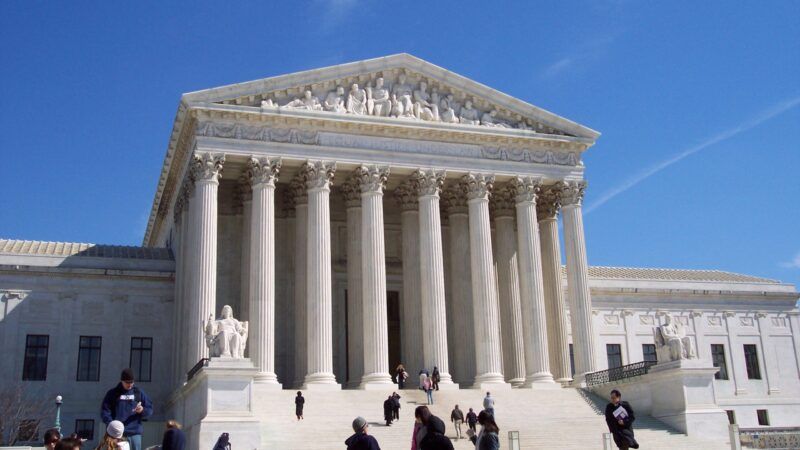The Supreme Court Is About To Hear 2 Education Cases. Neither Goes Far Enough.
The Court will weigh religious opt-outs and charter school discrimination. But true educational freedom means funding students, not systems.

Before the end of April, the U.S. Supreme Court will hear not one, but two important education freedom cases. At stake in both is the ability of families to determine what children will learn.
Unfortunately, no matter how the cases are decided, neither will get us to where we ultimately need to be for a free and equal society: money following children to whatever education they and their families choose.
The first case, Mahmoud v. Taylor, is too narrow. Mahmoud pits parents in Montgomery County, Maryland, against a school district that prohibited them from opting their children out of readings promoting lifestyles at odds with their religious convictions.
School board member Lynne Harris unabashedly said imposition was necessary. "Saying that a kindergartener can't be present when you read a book about a rainbow unicorn because it offends your religious rights or your family values or your core beliefs is just telling that kid, 'Here's another reason to hate another person,'" Harris said, adding "we are not going to do that in the school system."
Government imposing the "right" morals is obviously at odds with a free, diverse society, and allowing for an opt-out is a no-brainer. But it is also just a bare minimum: Families would be able to shield their children from the imposition of values, but would still be given no power to choose a curriculum consistent with their religious convictions.
It is a Band-Aid on a liberty hemorrhage.
The second case, St. Isidore of Seville Catholic Virtual School v. Drummond, seeks to expand freedom and equality, not just provide basic choice against government imposition. But it still does not offer a solution.
St. Isidore is a Roman Catholic cyber charter school that received approval to operate from Oklahoma's state charter school board. However, the state's supreme court later overturned the approval because it is a religious school. Charter schools are, by law, public, but they are supposed to be free from many rules and regulations that govern traditional public schools. Because they are public schools, under the principle of separation of church and state, they have never been affiliated with any religion.
But there is a glaring problem with that: It discriminates on the basis of religion. It says a charter school can adopt any ethos it wants, as long as it is not a religious one. Citing precedent, the petitioners cite several recent Supreme Court decisions that find if a state runs a school choice program, it cannot exclude religious institutions.
It is a compelling argument, but the prior cases were about private choice—scholarship tax credit and town-tuitioning programs that empower families to make choices among autonomous private schools. Chartering is different, as it almost always involves a government entity—a school district or a state board—deciding whether to approve applications to create a school. This presents the danger that an authorizer might approve or disapprove a charter application based on the applicant's religious status. And even if religion did not play into the decision, suspicion that it did could spark an ugly church-state conflict.
This is a rock-and-a-hard-place situation for the Supreme Court: Rule against St. Isidore, and discrimination against religion wins. Rule for it, and dangerous government entanglement will ensue.
Thankfully, there is a solution to both the discrimination and entanglement problems, and it can be seen in the precedents: money following children to private choices. If money follows kids to truly private schools that families choose, the government has no role at all in the decision and is therefore truly neutral.
This seems logically and constitutionally obvious. Government must not select religious viewpoints to uphold or advance, including secularism. But this is inherently the position in which public schooling puts government. Of course, educational freedom is bigger than religion—government should not be imposing one curriculum, or set of policies, on anyone. But religion, constitutionally, demands neutrality.
Letting families opt out of instruction that violates their religious values is better than no option, and allowing them to choose religious public schools is better than excluding religion. But only real choice among private educational options fully fits the freedom and equality bill.


Show Comments (273)